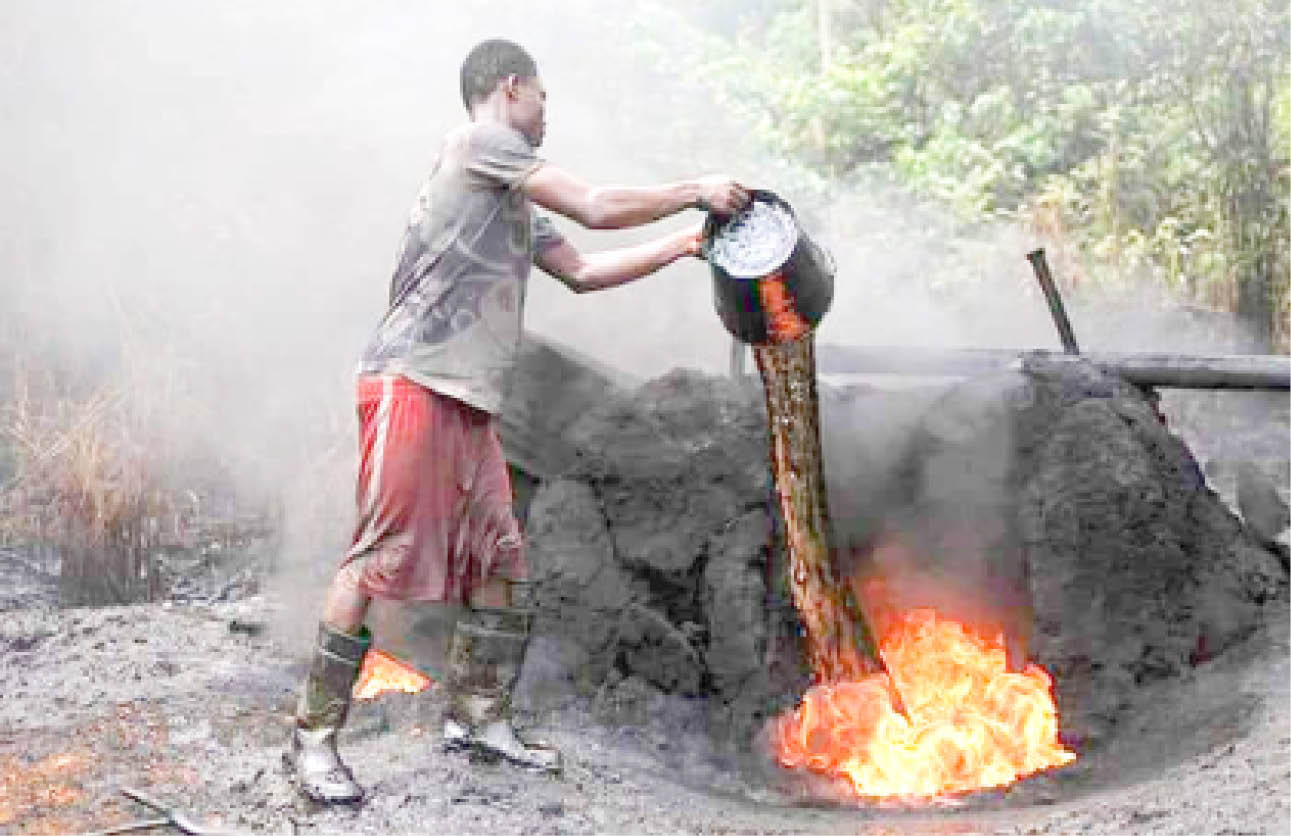Barely a fortnight ago, over 100 persons lost their lives while scores of others sustained serious burn injuries of varying degrees in a fire disaster when an explosion occurred at an illegal petroleum refinery in Ohaji Local Government Area of Imo State.
The dead victims – many of whom were burnt beyond recognition, have since been buried in mass graves, while survivors were taken to various hospitals for treatment. In the wake of the sad development, the Imo State government launched a manhunt for the operators of that particular facility as well as other similar refineries, with a call by the state Governor, Hope Uzodinma, on the citizens to desist from the practice of illegal refining of crude oil.
Long COVID sufferers who sing lullabies find it easier to breathe – Study
Bus driver arrested with N3m Indian hemp
We commiserate with families of those who lost their lives in the incident and wish those injured a quick recovery.
It is most disheartening to note that this is one incident that could have been avoided. Several times in the past, many Nigerians have lost their lives to activities of illegal refineries or while attempting to scoop petrol from accident sites. One would have thought that Nigerians would have learnt from such to avoid a repeat. We, therefore, condemn the attitude of some Nigerians to the handling of petroleum products and call for caution in the future.
The illegal refinery was one of the makeshift contraptions with which stolen crude oil had for some time been refined by oil thieves, to produce low-grade fractions of crude oil such as impure kerosene, premium motor spirit (petrol) and diesel.
The practice of stealing and illegally refining crude oil, which started in the Niger Delta has now become a nationwide lucrative criminal enterprise that is operated in the most dangerous conditions without adequate safety provisions for both the culprits and the environment. The black soot, which currently dominates Port Harcourt and its environs, causing severe health challenges is a result of the illegal refining of crude oil.
The lure of huge profits had attracted not a few members of the Nigerian elite to act as sponsors and beneficiaries. In fact, it is believed that out of every 10 fuel tankers on Nigerian roads, at least two are loaded with crude oil that is intended for illegal refining in one remote part of the country, or the other.
Gruesome as the Imo State incident was, it is hardly the first time this incident would occur, as several such developments had been recorded – especially in the Niger Delta, where due to the remoteness of the locations of the occurrences, they are hardly reported. That notwithstanding, the outcome of such developments is also the incineration of persons found in the vicinity. This is how volatile and therefore deadly, the growing practice of illegal refining of crude oil can be.
Against the backdrop of its inherently dangerous nature, lies the question of why the practice of illegal refining of crude oil still enjoys widespread participation.
The answer lies in the provision of more refineries even if it is the proliferation of modular versions. Illegal refining of crude oil is lucrative as the demand for refined petroleum products is high. It is not debatable that Nigeria’s present refining capacity is low with its four refineries not being active for several years. And since we cannot deny the existence of this practice, the government should consider looking at the illegal refineries in a bid to absorbing them into the system so that their activities can be professional and properly monitored.
Secondly, there is the need to step up security in the sector to stem illegal refining of crude oil, as there are powerful syndicates engaged in it. For instance, it is easily recalled that the Rivers State government recently embarked on a massive campaign to arrest and stop the practice of illegal refining of crude oil in the state, and in the process, alleged active connivance by security agents in the enterprise.
A dramatic fallout of the situation was the call by the State Governor, Nyesom Wike for the posting out of the Rivers State Commandant of the Nigerian Civil Defense and Security Corps (NCSDC), for alleged complicity in illegal crude oil theft and refining.
In the circumstance, the core lessons from the Imo State incident and other similar ones across the country, include the high price associated with the country’s present slack attitude towards discipline and effective regulation in the oil and gas sector, which is its lifeline. While it had been long established that the establishment of a multiplicity of modular refineries will help to curb the massive scale of crude oil theft, the government has failed to heed the advice.
It has also been long established that the Nigerian oil and gas sector is poorly managed hence the high incidence of anomalies, which include oil theft for clandestine export activities and the newfound rave of illegal refining.
With the advent of the new Petroleum Industry Act 2021, this is hoping that a better regulatory regime will be visited on the sector to avert sad outcomes as the Imo State incident and others.

 Join Daily Trust WhatsApp Community For Quick Access To News and Happenings Around You.
Join Daily Trust WhatsApp Community For Quick Access To News and Happenings Around You.


